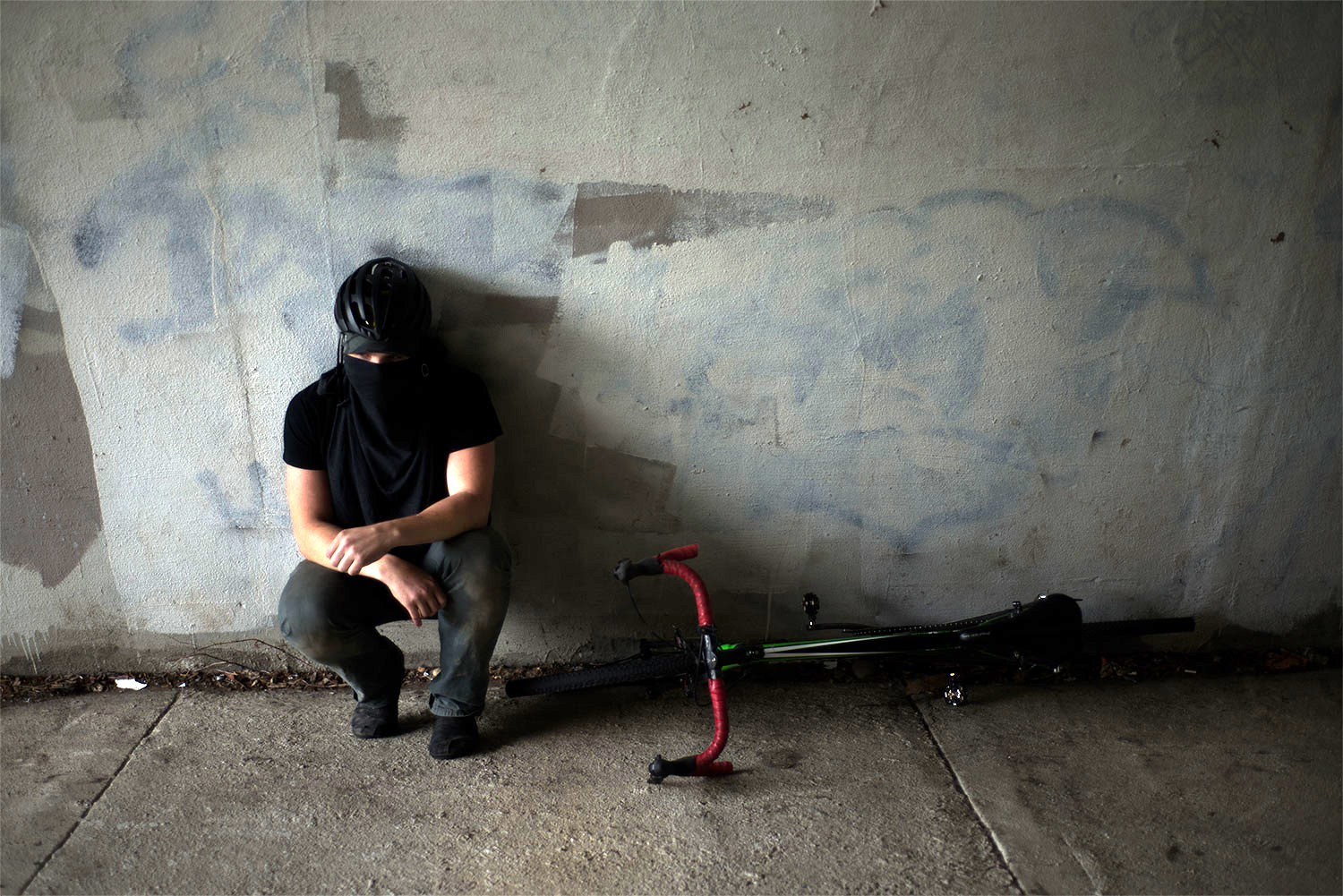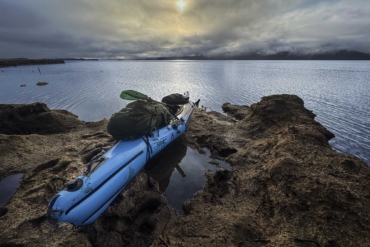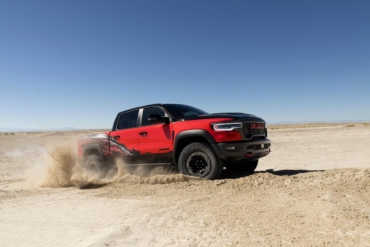It was a lazy Sunday afternoon in Asheville, North Carolina. Hurricane Michael brought nearly 36 hours of heavy rain to the Carolinas, and the rivers were charging. When my partner, a veteran kayaker, returned from the river, he made a simple mistake we’ve all been guilty of. Dodging the downpour with an armful of groceries, exhausted from paddling, and desperate for a hot shower — he forgot to lock his truck.
It was a perfect storm of mishaps, really. And in that storm — literally and figuratively — a criminal found an opportunity. Within a 90-minute period, my partner’s truck was stolen from outside our front door with two kayaks and $1,000 worth of gear in the back.
It was a shock to us, but really not an uncommon story. If you own gear, theft is often not a matter of “if,” but “when.” According to the National Insurance Crime Bureau, a motor vehicle is stolen every 42.2 seconds in the United States. Bike thefts are also on the rise, with nearly 2 million swiped per year. Kayak theft statistics are harder to come by, but just scan your local Facebook gear exchange to find countless victims sharing photos of their boosted kayaks in vain.
Out of all the vehicles stolen per year, 1 in 5 is eventually recovered — and my partner’s truck was one of them. But it wasn’t because the long arm of the law managed to track it down. We actually did our own detective work. Between internet sleuthing, video surveillance footage, neighborhood canvassing, and pure dumb luck, we found the truck unscathed and all the gear accounted for.
So if you have recently experienced theft and are feeling hopeless, don’t give up! The chances of you finding your property might be higher than you think — especially if you’re up for a bit of detective work. Here’s how we took matters into our own hands and uncovered the clues to find our stolen vehicle and gear.
How to Track Down Stolen Property
File a Police Report, Know Your Info

Once the paralysis of disbelief wore off, we called the cops. When you file a police report, be sure to have all identifying information ready, including your vehicle’s VIN number, serial numbers for your gear, identifying features, and any other relevant information.
While your vehicle will be entered into a national database and your case assigned to an officer, your stolen property is admittedly not a priority. But don’t let that discourage you! There is plenty of detective work you can accomplish on your own.
Keep in mind that police reports are public records. So look to see if there have been any similar thefts or property recoveries in your area. Pay attention to patterns. If you see a trend of vehicles being dumped in a specific area, or a neighbor reported a theft within the same timeframe, you’ll know where to start your search.
In our case, there were six reports of vehicle theft and two recoveries within a 5-day time frame. Both of those vehicle recoveries turned up within 2 miles of our address — a good indication that the truck was close by.
Spread the Word
Say what you will about social media, but it’s really good at disseminating information. We immediately shared the news of the stolen goods across our social networks with identifying photos, incident timeline, and key features.
When spreading the word, encourage your friends to also share the post with their networks. Take advantage of local Facebook groups, gear swap groups, and message boards. Call scrap yards, pawnshops, and secondhand gear stores. The more folks looking out for your stuff, the better chance you’ll have of finding it.
Comb the Internet
When the inevitable feeling of helplessness set in, we turned to the internet. We scanned Craigslist, Facebook Marketplace, Offer Up, and LetGo incessantly for evidence of scrapped vehicle parts or kayaks for sale. If you can find your gear, you can arrange to see it in person and notify the authorities.
Desperate for control of our own situation, I scrolled, refreshed, and repeated. If I may offer a bit of advice: Save yourself time (and sanity) by setting up a Google alert. You’ll automatically receive notifications of any new posts that fit your gear description, allowing you to focus on other leads.
Be Neighborly
Monday morning, I noticed a report of suspicious activity from a neighbor on Nextdoor. Sure, community hub apps can be like having a nosy neighbor in your pocket, but they prove to be helpful tools for self-reporting crime.
Our neighbor shared that she caught a man checking car doors Sunday evening at approximately 6:22 p.m. — the same timeframe our truck went missing. Here it was: our first real lead. This new information confirmed a strong possibility that this was our perp.

Secure Surveillance Footage
Following this lead, our next goal was to secure surveillance footage to identify the exact time the truck was taken. Situated on a dead-end street that connects to the main drag, our house sits in the heart of West Asheville, an area known for rockabilly dive bars, music venues, breweries, and, unfortunately, higher-than-average crime.
With only one direction to go, the perp was forced to drive toward the main road, past several businesses with security cameras perched above the intersection. So we called each of these businesses and regularly followed up until someone agreed to help us. Don’t worry, be persistent!
Nearly 72 hours later, we received a still photo from a security camera showing our truck turning east at 6:29 p.m., 7 minutes after our neighbor reported the suspicious activity on Nextdoor.

Canvass the Block
To say this discovery was crucial would be an understatement. Not only did the security footage confirm the exact time the truck was stolen, but it also corroborated our suspicion that the man reported on Nextdoor was in all likelihood the perp.
It also provided a direction to focus our canvassing efforts. My partner headed east by bike, knocking on doors and talking to neighbors to see if they had seen the man in question. Turns out a few neighbors had seen it, and one had taken a picture of the man traveling south toward our neighborhood corner store.
Wasting no time, my partner headed to the nearby bodega to request its surveillance footage.
Dumb Luck
Was it divine intervention or a coincidence? More like dumb luck. Motivated by the quick progression of leads, my partner enthusiastically explained the story of his stolen truck to the clerk at the corner store. Together, they looked at the security cameras to see which might have the best angle to see the man, when a voice perked up behind them in line.
“Does your truck have Georgia plates?” someone asked.
“Yes,” my partner replied.
“And two kayaks in the back?”
“My kayaks are still there?!”
Similar to other recovered stolen vehicles in the area, my partner’s truck was dumped in the early hours of Monday morning, less than a half-mile from our home. It had been driven fewer than 10 miles, the kayaks and gear seemingly untouched in the back.
Again, a little dumb luck. But as the saying goes, luck is just the intersection of opportunity and preparedness. We had wasted no time doing the leg work and getting the word out. So we knew where to look and asked the right questions at the right times.

What We Learned
While you can take significant measures to reduce the risk of theft, it’s impossible to eliminate it completely. Here are the key points we learned on how to improve your odds of recovering stolen gear:
- Be prepared and keep a record of all important identifying information, including serial and license plate numbers.
- Double-check your car insurance — is theft covered?
- Invest in some renter’s insurance, and possibly even a home security camera.
- If you do fall victim to theft, stay calm, be positive, and get to work. Remember that public police records can aid your investigation.
- Be observant of your surroundings, get in the habit of regularly talking to your neighbors, and report suspicious activity (but please, don’t be a “Karen”).
- Gather up karmic points by sharing other victims’ posts and look out for your community.
- Patiently and cooperatively hold law enforcement accountable.
- And this is an obvious one: Under no circumstances should you leave your car unlocked!







